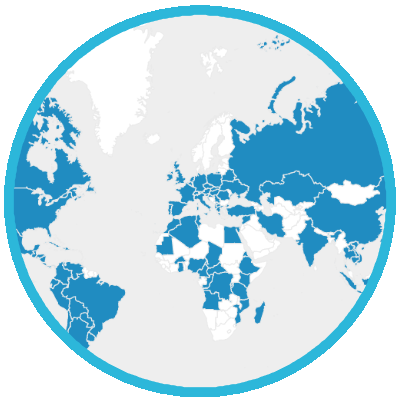Leave no one behind
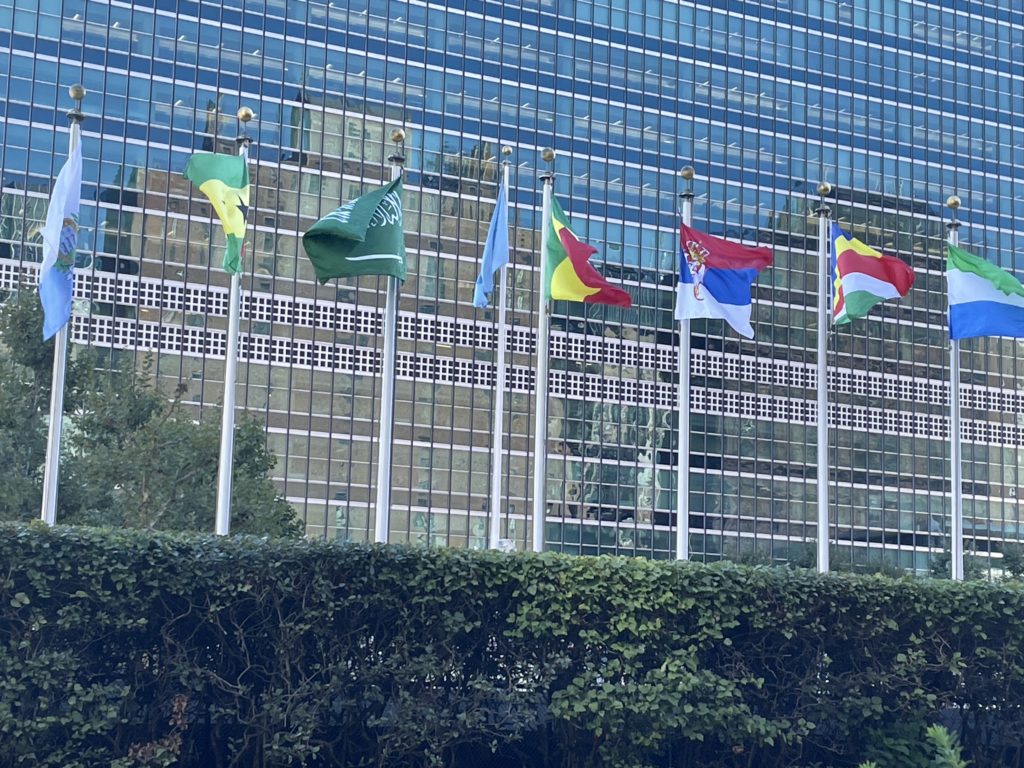
“Leave no one behind” has become the moto, the focus of every meeting at the United Nations. The phrase reminds Member States of their commitment to the elimination of discrimination, social inequalities, and exclusion. These are what make people vulnerable and limit their possibilities. Both social and economic development need to be accessible to all. However, since the adoption of the Sustainable Development Goals (SDGs) in 2015, across the globe inequalities have increased. More and more people are falling into deeper poverty and social exclusion, causing enormous human suffering. Millions are being left behind.
The world is experiencing unprecedented global multidimensional crises that have increased poverty, hunger, and food insecurity, with the sharpest impacts being felt among rural areas and communities. We can all see this in our own countries.
The Permanent Forum on Indigenous Issues took place at the United Nations Headquarters in New York, from 17- 28 April 2023. The priority theme of the session was: “Indigenous Peoples, human health, planetary and territorial health and climate change: a rights-based approach.”
Csaba Kőrösi, 77th President of the General Assembly of the United Nations, stated at the opening of the Forum: “As guardians of 80 per cent of the world’s biodiversity, you hold traditional proficiency in how to adapt, mitigate and reduce climate risks, by following your guidance, we can be much better positioned to fulfil the Sustainable Development Goals, SDGs. I invite you to enrich our understanding and bolster our quest for transformative solutions.”
Indigenous Peoples make up less than 6 per cent of the world’s population, but account for 15 per cent of the poorest. They live across some 90 countries, represent 5,000 different cultures and speak an overwhelming majority of the world’s estimated 6,700 languages. They have historically been custodians of the environment and protectors of biodiversity and have time-tested solutions to offer to the challenge of climate change facing us all. Nearly 70 million depend on forests for their livelihoods, and many more are farmers, hunter gatherers or pastoralists. These communities thrive by living in harmony with their surroundings. Research shows that where Indigenous Peoples have control of the land, forests, and biodiversity flourish.
Indigenous Peoples are among the first to face the direct adverse consequences of climate change, due to their dependence upon, and close relationship with the environment and its resources. There are an estimated 370 million Indigenous Peoples whose livelihoods are affected by climate change worldwide. The global pandemic proved that Indigenous Peoples are often disproportionately affected by epidemics and other crises, with Indigenous women and girls particularly negatively affected due to their gender, ethnicity, and scarce economic resources.
At the end of the session, the commission made some pertinent remarks: The Permanent Forum is not merely a single event — the efforts made during the sessions are not simply words that are spoken and then forgotten. The Secretary-General Antonio Guterres pointed out, stressing: “The result of the Forum’s annual session takes the form of immense debates — robust debates — conclusions [and] thoughts being shared and that is our contribution to multilateralism: to make peace, development [and] human rights a reality for and with the Indigenous Peoples of the world.”
The High-level Political Forum on Sustainable Development (HLPF) will be held from Monday, 10 July, to Wednesday, 19 July 2023, under the auspices of the Economic and Social Council, ECOSOC.. The theme will be “Accelerating the recovery from the coronavirus disease (COVID-19) and the full implementation of the 2030 Agenda for Sustainable Development at all levels.” The Forum will review in-depthGoals 6 on clean water and sanitation, 7 on affordable and clean energy, 9 on industry, innovation, and infrastructure, 11 on sustainable cities and communities, and 17 on partnerships for the Goals.
The HLPF allowed Member States and government officials to share their progress toward the Sustainable Development Goals, SDGs, this is just one of a series of many Summits and high-level meetings that will take place at the UN about the Sustainable Development Goals. The 2030 Agenda offers us a chance to recognize and address how the development and degradation of the planet impacts the environment, economies, and societies in which all people exist.
Within the UN system, the role of Non-Governmental Organizations (NGO), also known as Civil Society, is to speak on behalf of people, not governments. Often, they have been described as “the conscience of the United Nations”. The Daughters of Charity , as an accredited NGO, try to bring to discussion the experiences of the people they serve, especially the marginalized, and vulnerable. Our presence at the UN gives the opportunity to bring to the Member States the voices of people who are without access to the world forum, and frequently the people who cannot bring their voice even in their own countries. A major way that we do this is by presenting written and oral statements during UN meetings. The effectiveness of the NGOs’ participation at the UN depends on the quality of the first-hand reports they receive from the grassroots. So it is important to stay connected in order to alleviate the life of the underpriviledged.
Sister Michelle Loisel, DC
Other articles
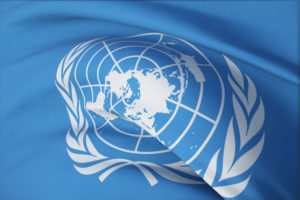
Human Trafficking: “The open wound on the body of our contemporary society”
According to Pope Francis, “Human trafficking is an open wound on the body of contemporary society, a scourge upon the body of Christ. It is
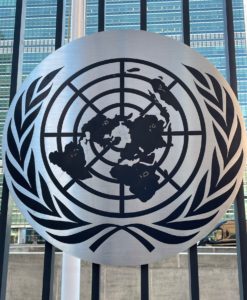
Be the change you want to see in the world!
Blessed Easter Season to each of you! It is certainly a busy time around the UN, as more and more
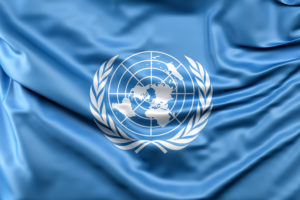
Mending Blessing
O my friend, take heart. The work of repair is aching in its slowness and beautiful in the inches by

Our planet is still in the emergency room
At the opening of the Climate Implementation Summit at COP27 in Sharm el-Sheikh, Egypt, the UN Secretary General António Guterres


